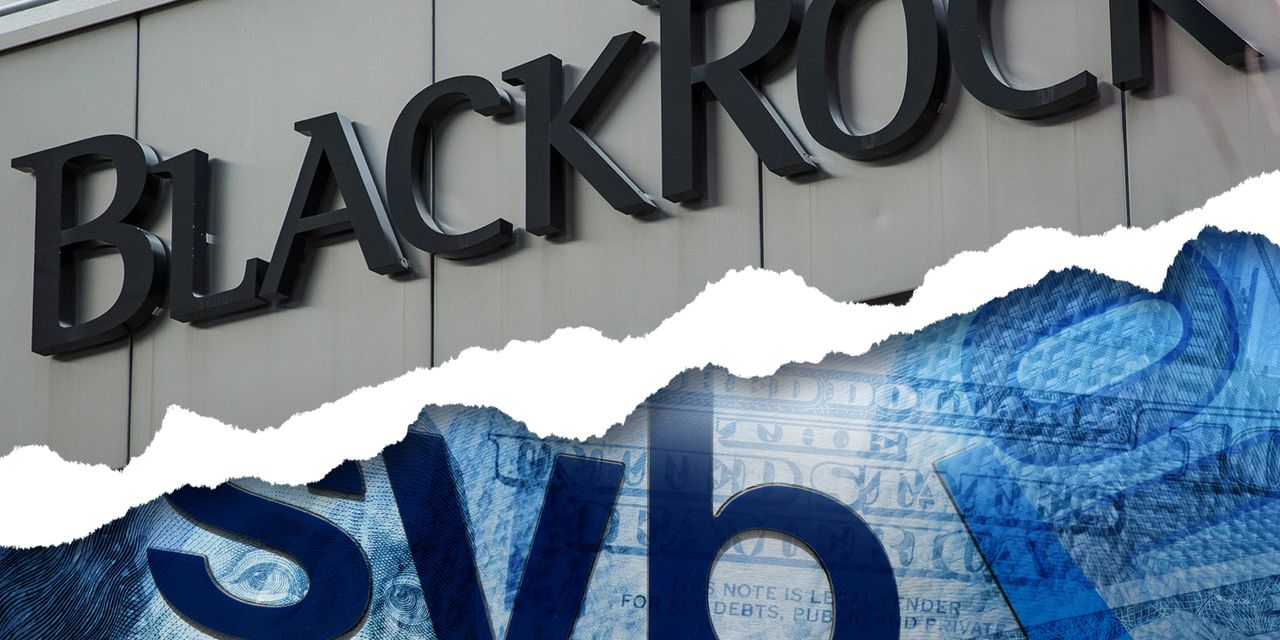BlackRock Inc. on Tuesday began to solicit interest in $114 billion in assets seized by regulators last month after the failures of Silicon Valley Bank and Signature Bank.
The first list, a roughly $292 million parcel of agency mortgage-backed securities with coupons of about 2.5% to 3%, rolled out before noon Eastern time, according Empirasign, a platform that tracks trading activity in mortgage bonds and securitized products.
Sales of the assets were expected to emerge in increments, rather than hitting all at once and potentially causing more volatility in financial markets.
“People are looking for assets, so this should be an opportunity to source bonds,” said Tracy Chen, a portfolio manager at Brandywine Global, speaking to the sharp drop in issuance of new bonds this year as borrowing costs have jumped. “While I believe this will be an orderly sales process, I think spreads will widen.”
Bonds often are sold at a spread, or premium, above the risk-free Treasury rate
TMUBMUSD10Y,
which can increase when markets get choppy or on concerns of rising borrower default risks.
Chen said the spread on the “current coupon” 5.5% agency mortgage bond has already been increasing from its prior range of about 160 basis points above Treasurys and could gap out by as much as 20 basis points.
She also said jitters remain about other banks loaded up with underwater securities. “My fear is there will be other banks that have liquidations.”
The Federal Deposit Insurance Corp. estimated that U.S. banks had some $620 billion of unrealized losses from securities on their books as of the end of 2022, including longer-duration Treasurys and mortgage securities that have become worth less than their face value. Researchers at Stanford University estimated the tally could be $2.2 trillion.
A run on deposits at Silicon Valley Bank snowballed after the bank disclosed a $1.8 billion loss on a sudden sale of $21 billion in high-quality, rate-sensitive mortgage and Treasury securities.
It became the biggest U.S. bank failure since Washington Mutual’s collapse in 2008. Signature Bank in New York failed days later.
In response to the turmoil, the Fed acted to create an emergency lending facility for banks to prevent additional forced sales, with use of the facility easing in recent weeks as calm has been restored to markets.
Sheila Bair, who ran the FDIC from 2006 to 2011, told MarketWatch in April that regulators needed to focus on underwater securities at all banks.
BlackRock’s financial-markets advisory arm was hired in early April by the FDIC to market the securities for sale from the two failed banks. It didn’t respond to a MarketWatch request for comment.
The assets for sale include agency mortgage-backed securities, commercial mortgage-backed securities, Treasurys, corporate bonds and other securities created in an ultralow-rate environment.
A second list of almost $400 million in FDIC assets will be offered on April 24, a mix of prime and subprime mortgage bonds, according to Empirasign. A third list of mostly residential bonds will be offered on April 26.
Stocks were struggling for direction on Tuesday, with the Dow Jones Industrial Average
DJIA,
and the S&P 500 index
SPX,
nearly unchanged after midday.
Related: ‘We’ve seen this movie before,’ says Waterfall Asset co-founder on trouble in commercial real estate

